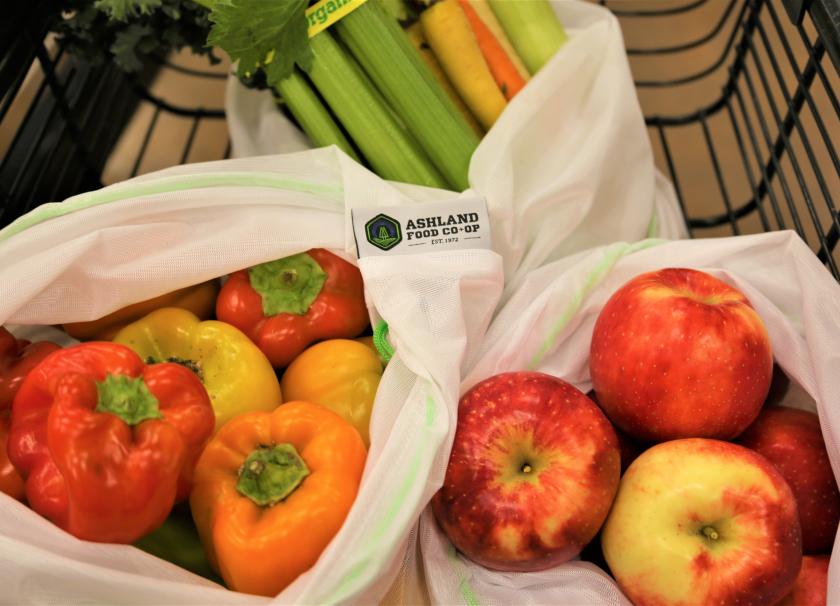
Compostable Bags
The Co-op has been asked if compostable plastic bags are a viable alternative to the standard plastic bags offered in the produce and meat departments.
For several reasons, compostable bags are not in line with the Co-op’s goals and standards.
Not compostable at home
Very few if any compostable bags will break down in a backyard composting system. Most require industrial composting equipment, which is not available to Ashland or Medford waste management subscribers. Most brands carry the ASTM D6400 designation, which signifies ‘compostable in municipal and industrial composting facilities’ - facilities which are not available in the Rogue Valley.
Production practices
Many of the bio-plastics and compostable plastics are made from GMO corn, cultivated with non-organic practices that include pesticides and herbicides.
Arable land to grow packaging instead of food
Food security is already an issue across the country. Devoting land that could grow healthy foods to create single-use packaging instead is not a trade-off that the Co-op supports.
Durability
These single-use bags are weaker and prone to puncture, leading to less re-use and increasing the demand for a single-use replacement.
The Co-op will continue to research alternatives as new technologies come to market. Until then, we will encourage behavior change at the consumer level through the promotion of affordable, reusable bags.
More Co-op News

March 2023 Change for Good: Klamath Bird Observatory
From Klamath Bird Observatory, March 2023's Change for Good partner:

Frederick Douglass And Co-ops in 1846
When Douglass Came to Rochdale, England a Slave and Left a Free Man
By David J Thompson

February's Change for Good partner: OHRA

OHRA helps low-income people build better lives through access to social service resources. By helping
people move from crisis to stability, OHRA builds more capable individuals, stronger families, and a
better community. We have three core programs:
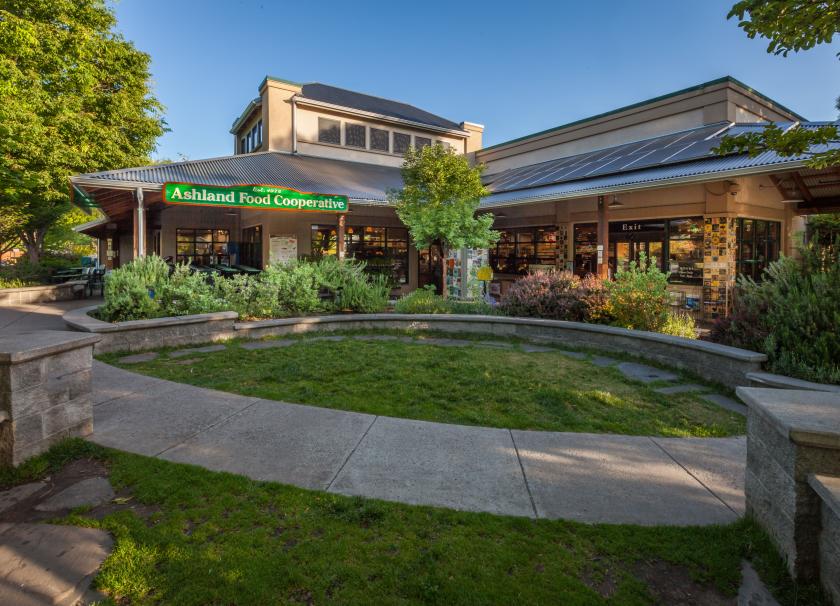
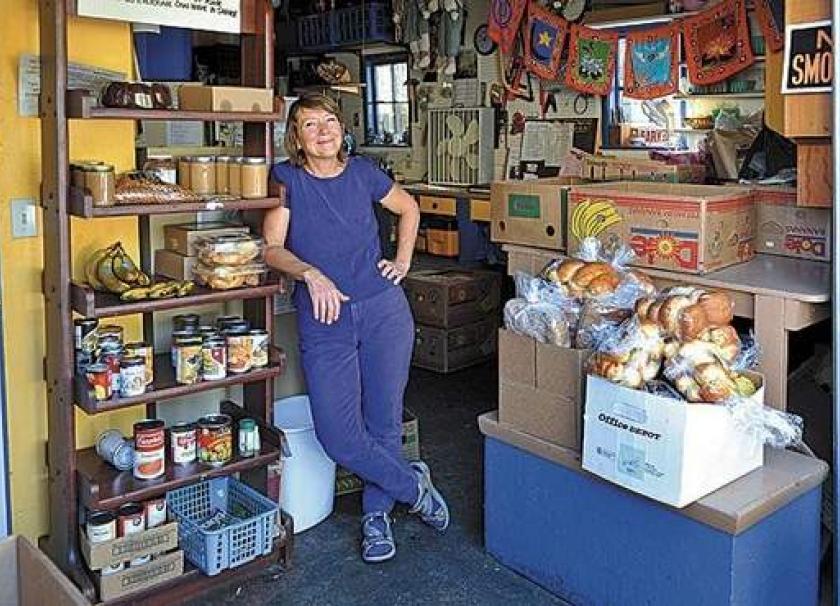
January Change for Good Partner: Ashland Food Angels
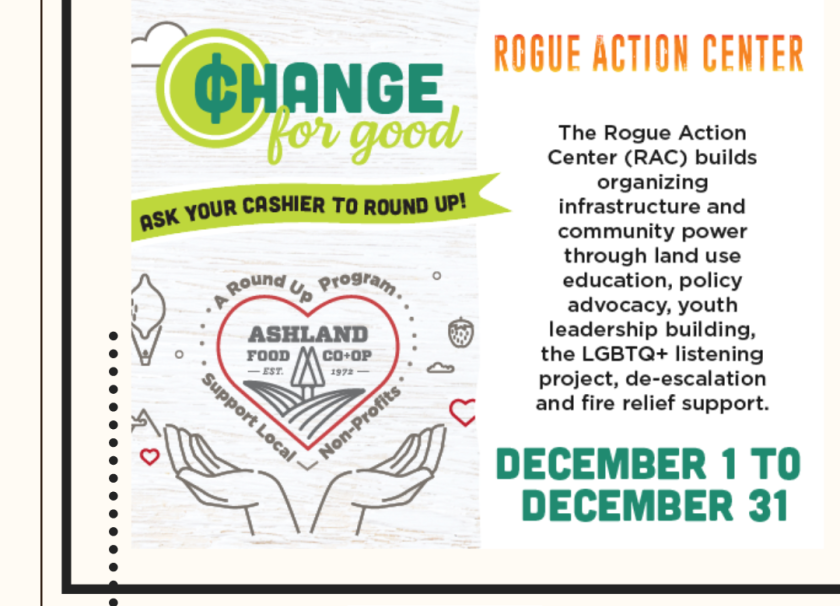
December Change for Good Partner: Rogue Action Center
December's Change for Good Partner is
Rogue Action Center
%20(1).png)
The Rogue Action Center (RAC) builds organizing infrastructure, leaders, and community power for a just, inclusive, and sustainable Southern Oregon for everyone.
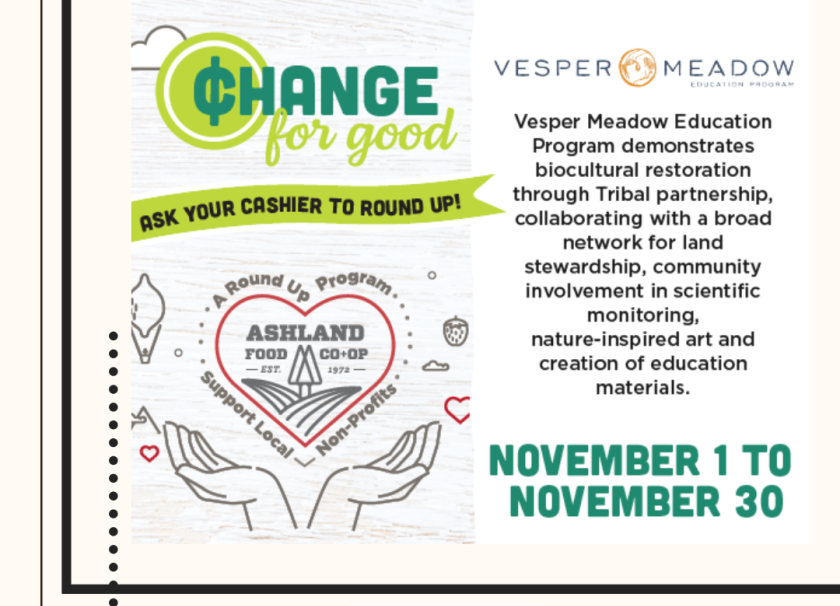
November Change for Good Partner: Vesper Meadow Education Program
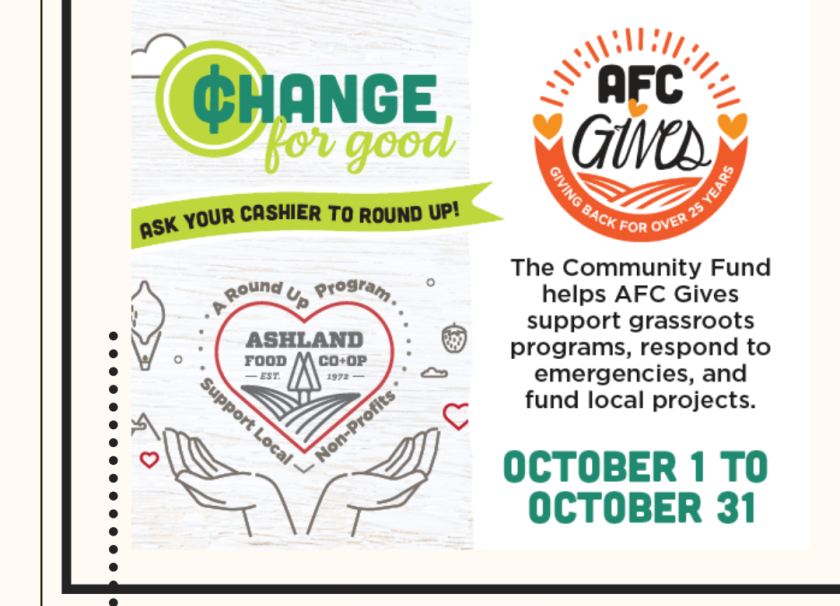
October Change for Good Partner: AFC Gives Community Fund
October's Change for Good Partner is
AFC Gives Community Fund
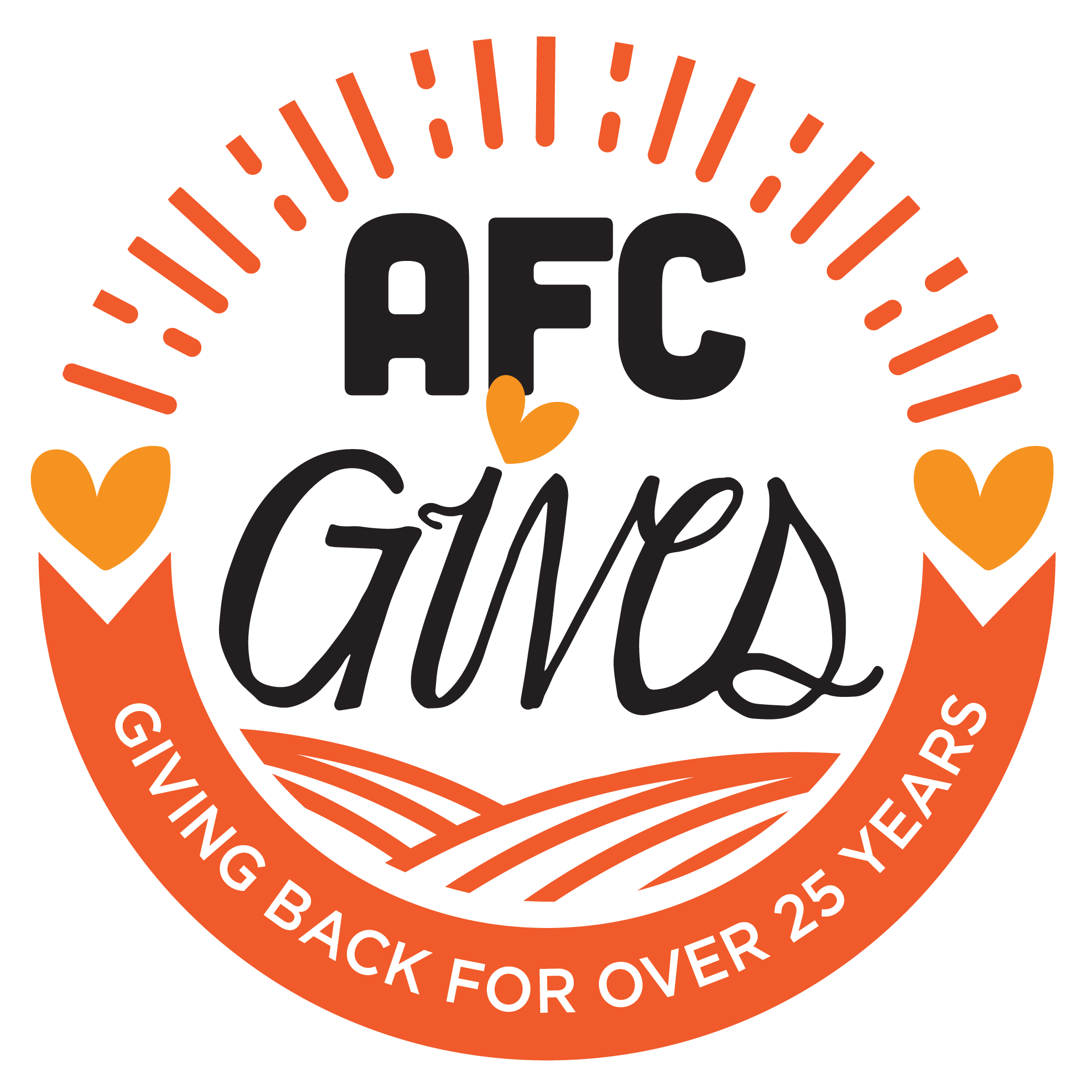
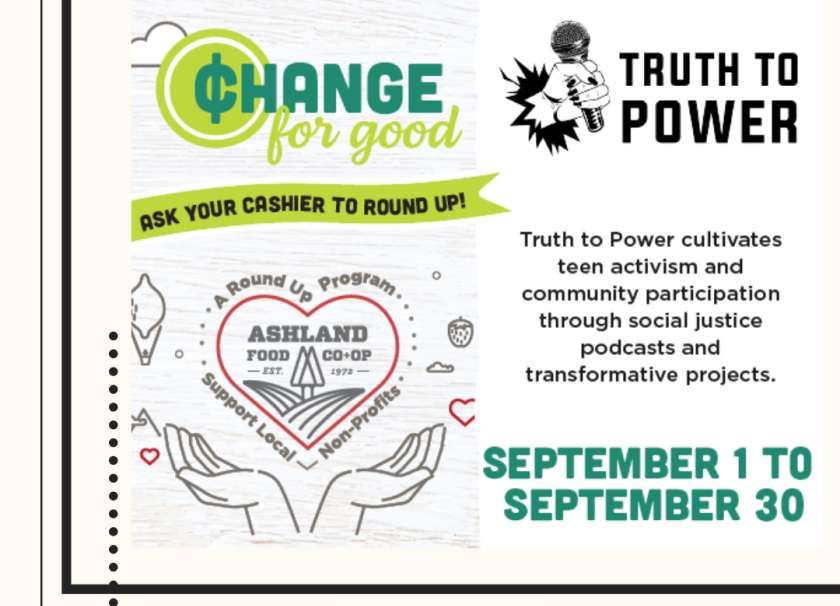
September Change for Good Partner: Truth to Power
September's Change for Good Partner is
Truth to Power
.png)
Truth to Power cultivates teen activism and community participation through social justice podcasts and transformative projects.

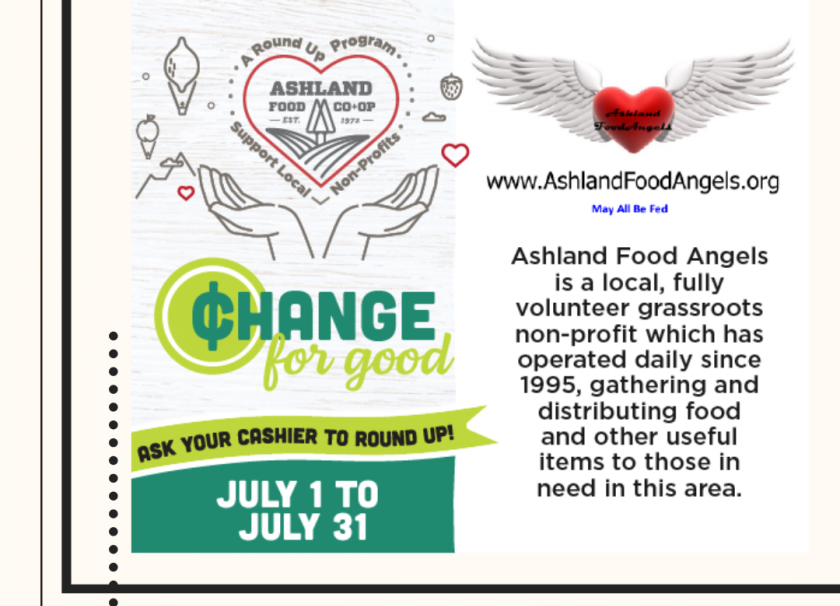
July Change for Good Partner: Ashland Food Angels
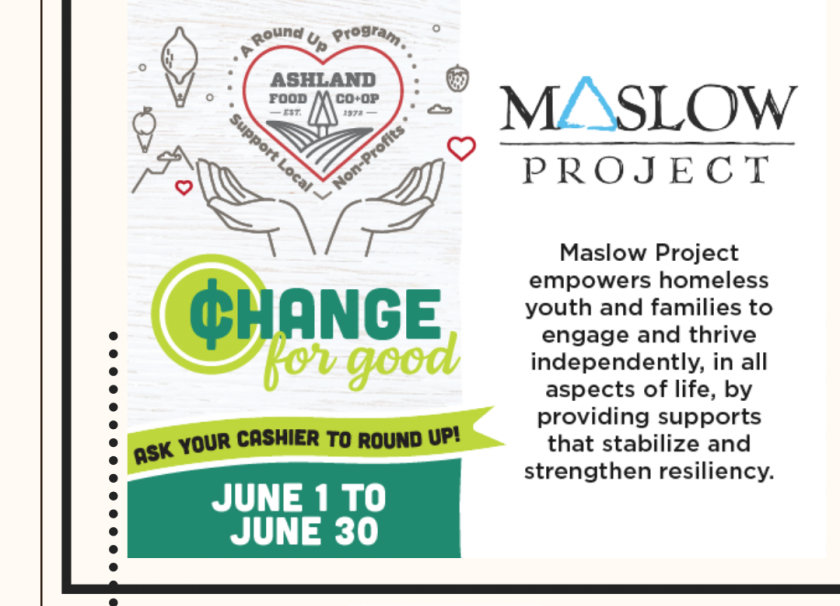
June Change for Good Partner: Maslow Project

Celebrate Ashland Food Co-op's 50th Anniversary
Ashland Food Co-op has been a staple in our community for 50 years and invites you to celebrate this anniversary with them on June 3rd, 2022 from 5:00 PM-8:00 PM, at the AFC employee parking lot for dancing, food, face painting and more!
Music by Eight Dollar Mountain and Wild and Blue.
Siano's Karibbean Cookhouse, Walkabout Brewing Co. and Rogue Kombucha will be joining us with delicious food and beverages available for purchase.
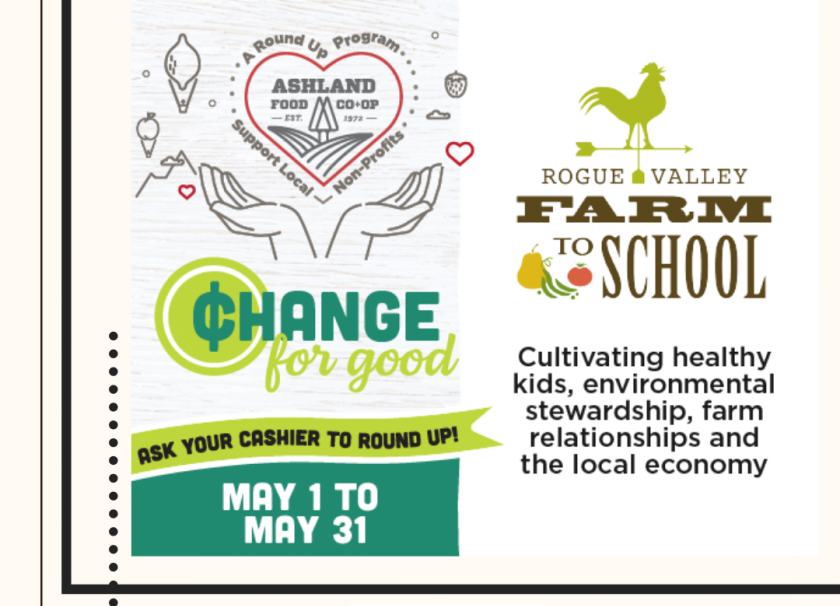


.png)


.png)